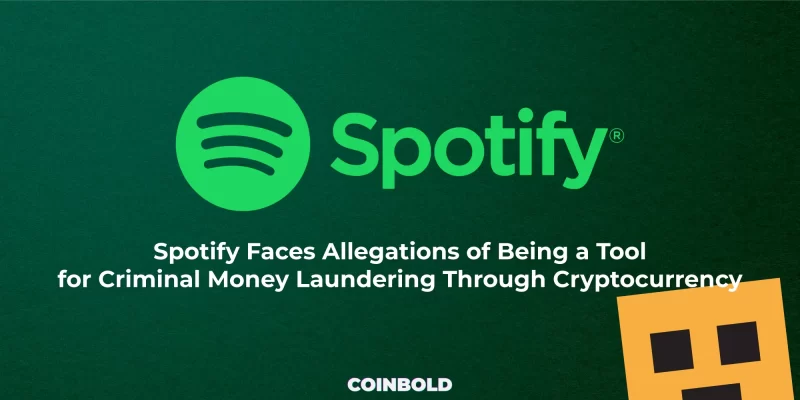In a shocking revelation, an anonymous Swedish criminal has exposed a disturbing trend where Spotify, the popular music streaming service, is allegedly being exploited as a tool for money laundering by criminal organizations, all facilitated through the use of cryptocurrencies. This startling revelation shines a light on the ominous side of cryptocurrency transactions and their potential involvement in illegal activities.

Spotify’s Unintended Role in Criminal Money Laundering
The anonymous gang member, in an interview published by Svenska Dagbladet (SvD), candidly revealed the extent to which Spotify has unwittingly become entangled in criminal enterprises. The individual stated, “I can say with 100 percent certainty that it will happen. I myself have been involved.”
According to reports, this revelation came to light after an unidentified police officer working at Noa (the national operations department of the police) attempted to alert Spotify about its platform being exploited by criminals. Unfortunately, there was allegedly no response from Spotify to these warnings.
The police officer, speaking to a news magazine, expressed concerns about Spotify’s involvement, stating, “Spotify has become an ATM for them (the gangs). There is a direct link to the gangs and therefore also to the deadly violence.”
The Money Laundering Process
The modus operandi described by the anonymous criminal involves purchasing cryptocurrencies, such as Bitcoin, using illicit funds. These cryptocurrencies are then used to purchase fake listens from Telegram bots, artificially boosting the popularity of specific artists on Spotify.
In return for their collaboration, these artificially popular artists receive a significant share of the profits generated on Spotify, which they reportedly share with the criminal organizations. Notably, rappers associated with criminal activities have allegedly established their own music companies to channel and legitimize their earnings.
According to reports, approximately one million listeners can generate anywhere from 40,000 to 60,000 SEK before taxes.
Spotify’s Response
Following the publication of these allegations, a Spotify spokesperson vehemently denied the claims made by Svenska Dagbladet. The spokesperson stated, “We have no knowledge that the police have contacted Spotify regarding the claims Svenska Dagbladet writes about, nor have our internal teams discovered or received data or concrete evidence indicating that our platform is used to any great extent in the way described in the article.”
As these allegations raise significant concerns about the potential misuse of Spotify’s platform for illegal activities, it remains to be seen how authorities and the music streaming giant will respond to these claims.

